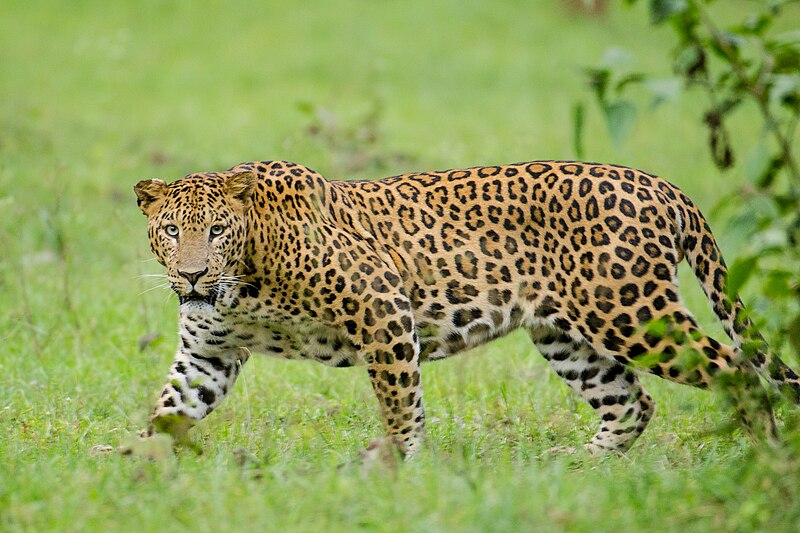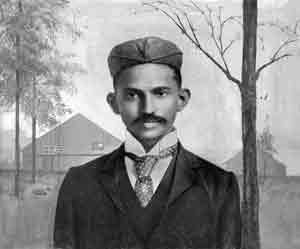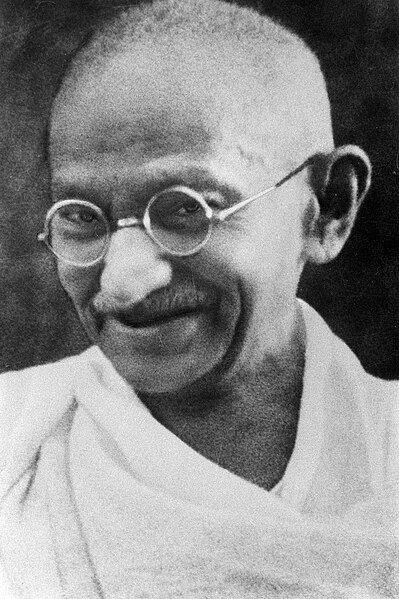Evolutions, Biological and Cultural

Olympic women's marathon competitors, 2012
(credit: Aurelien Guichard, via Wikimedia Commons)
In
some recent posts, I have referred to the parallels between biological evolution,
the process by which living species change over millennia, and the process of
human cultural evolution. This is a useful, fruitful comparison, so I want to
discuss it a bit further today.
The
ways that living species and ecosystems change are shaped by two main general
principles: genetic variation and natural selection.
Every
living thing contains some core DNA that directs how that living thing will be
built up from atoms and molecules, how it will interact with other things,
living and non-living, in its environment, how it will reproduce itself, and
how it will wear out and terminate. Die. The fate of all living things in the
end.
Humans,
like most living things of our type, i.e. mammals, are conceived in the
uteruses of females of our species, born out of our mothers’ bodies, nurtured
for fifteen to twenty years, and sent out into our physical environments, which
usually contain a lot of others of our kind. These others are usually like us
in anatomy, but also in cultural programming. We’re born, nurtured, educated,
and sent out into our environments to live as independent members of the tribe.
We usually find a partner to mate with, and the whole process begins again.
All
living things follow a very similar pattern. Really simple organisms don’t use
sexual reproduction. Each of them simply divides over and over again and their
numbers grow in their locale for as long as they can do so. But otherwise,
unicellular organisms are very similar in their life basics to complex
organisms. Come into existence, feed, excrete, reproduce, die.

Unicellular organism (paramecium)
(credit: Barfooz, via Wikimedia Commons)
But
studied over time, life reveals that it contains much more. Living things don’t
merely reproduce themselves and so survive in their offspring. They keep
changing in ways that enable them to adapt to, and survive in, their changing
physical surroundings.
Living
things clearly fall into groups. Most of the group members look like each other
and can only reproduce by mating with each other. But the groups, or “species”,
as we call them, also change as they go forward. The members of the group
gradually, over generations, take on new forms and behaviors till in 50 or 100
generations the members of the group look and act quite differently from their
ancestors. The changes come by small steps, and in each generation, individuals
whose special traits are not effective in enabling those individuals to survive
die out before they can reproduce. They take their genes out of the pool of
genes available to the whole species. Unusual coat markings, for example,
attract predators that get their bearers killed. In desperate cases when
environmental changes come rapidly, sometimes whole species become unfit and die
out.
They
die out because conditions in the environment around them change faster than
the species can adapt. More often, however, some members of the species better suited to the changing conditions do survive, adapt, have offspring, and pass their fitter genes on to a new
generation of the species.

Artist's conception of the dodo bird (now extinct)
(credit: Bazza Da Rambler, via Wikimedia Commons)
Real
environments change often and sometimes drastically. An ice age arrives, a
drought sets in, a volcano erupts, blight wipes out a forest. One marvels at how
living species manage to adapt and survive. What gives life such tenacity?
The
answer is that members of a species may be very much alike in anatomy and
behavior, and they may be capable of reproducing with the members of the
opposite sex of their species, but no two of them are ever exactly the same.
There are always small differences in intelligence, size, coloration, speed, strength,
resistance to disease, heat, cold, hunger, and so on.
When
an organism reproduces, it passes some of its attributes on to its young via
the DNA that is implanted in the young one’s cell nuclei. But not all of a
parent’s attributes get passed on to its young. Some inherited traits come from
the other parent and some come through a parent from earlier ancestors. Some of
a new individual’s traits, in other words, may have lain dormant in the DNA of
one of its parents, and not shown up in the parent at all, only to turn up now,
maybe generations since its last occurrence. Red hair, blue eyes, large stature,
musical ability, reasoning ability, sprinting speed …lots of traits can skip
one or several generations. Inherited DNA keeps getting stirred up. In fact, DNA
sometimes even gets re-arranged by outside forces (like radiation, for
example). New gene combinations, and living styles shaped by those new
combinations, keep emerging. Thus, living species are always subtly morphing
into new forms.
So
this is the first big point to get about all living things: they are
experiments, every one of them, all the time. Life is always trying out new design
ideas.

leopard (credit: Srikaanth Sekar, via Wikimedia Commons)

Black panther (a color variation of the leopard)
(credit: Bruce McAdam, via Wikimedia Commons)
This
first big principle of biological evolution is termed “genetic variation”.
The
second big idea to get when we try to understand evolution is that though
nature is always being creative and inventive, and nature seems in this picture
to be kind and generous, there is a dark side. The real world is harsh, uphill,
deadly. Individual organisms are dying in thousands of ways in millions of
places all the time. The best creative ideas that nature has each year – the
individuals that are designed in anatomy and behavior so that they can feed
themselves, reproduce, and successfully nurture their young – these transmit
their genes forward through time in their young. The rest don’t. They starve,
they get killed by predators, they freeze, they fail to protect enough of their
young to ensure that at least some of those youngsters go on …whatever. They
and their closest kin die out. In nature, this is not sad; it’s just over.
This
second big principle of evolution is usually called “natural selection”.
Gradually,
over many generations, the living things that do survive have done so because
they kept adapting as their environments changed. When a drought came, or an
ice age, or a blight killed off the plants they ate, or a new predator came
into their area – or whatever – the winners went on because they were
well-suited to handling the new reality.
Genetic
variation: all living species are changing subtly all the time. The genes in
their cell nuclei keep getting re-arranged and the individuals that are built
up as each one implements its genetic plan are always subtly different from
their parents. Species constantly experiment and tinker with their programs.
Natural
selection: of the billions of small experiments going on all the time, many
don’t work. In nature, only individuals whose design is suited to current
conditions go on to reproduce; over generations every species keeps turning
into something else – smarter, faster, stronger, better camouflaged – because
not all members in any given generation pass on their DNA gene codes. Many die
before they can reproduce, because they are slow, weak, unintelligent, etc.
Genetic
variation and natural selection drive the living world.
Except
that in the case of humans, we have stumbled upon a way of evolving and
adapting that is daring and dangerous, but much quicker than the process used
by other species. We train our young to survive. We program their brains, and
we do it generation after generation with great care. We pass on knowledge
about ways of getting food, healing injuries, curing diseases, reproducing, fighting
off predators, and so on to our young, not by coded information in DNA
molecules, but by parents training kids to do behaviors proven to work.
Humans
evolve almost entirely by refining their cultures, not their gene code. Human
DNA codes have had very little revising in the last 10,000 or so years. We
don’t use genetic evolution much anymore.
For
example, our ancestors learned long ago that some seeds or fruits that were
edible, but that they did not eat when they stripped the tree or grass of its
edible parts, got missed, dropped or excreted. These seeds grew new plants that
made even more fruit or seeds. It occurred to one of our early, smart ancestors
that she/he could purposely put some seeds into fertile soil in the spring –
i.e. could intervene in events in reality – and likely get some food for
herself, himself, their children or even their whole tribe before winter came.
Agriculture began.
Probably,
in similar ways, our ancestors learned that the deer came to drink at the water
hole just after sunset. Or that places in the river where the water was
bubbling and swirling were likely to contain lots of fish. Aloe juice healed
cuts. Ash wood made tough spears. Fire can be controlled if you control its
fuel. We learned tricks that fed or aided us. Most of all, we then taught them
to our kids.
Once
that process of building up and transmitting knowledge began, it made new ways
of life happen without any DNA changes. Cultural evolution. Then, the most
useful new ideas for surviving and flourishing spread as their carriers spread.
Good survival ideas spread like new combinations of genes spread, but much
faster. Smarter, healthier, better-fed tribes took over more and more
territory.
Sometimes the new territory was in lands that used to be marginal
for human existence, but more often it was in lands that were already inhabited
by other tribes. Sometimes the tribes traded, learned to live together,
interacted, and got along. Till they were interbreeding and making even more
creative ways of life. But more often, they fought a war, and the more vigorous
tribe overran the others.
In
the cultural system of evolution, weaker tribes were hardly ever wiped out.
They did not all die. But their way of life, their culture, did. The old ways
were gone. In the cold judgement of Science, the old ways died out because they
did not deserve to go on. To the individuals involved, the extinction of their
way of life was often very sad, very tragic. But not to nature. Nature doesn’t
care.
All
this only shows that our emotions are programmed by our cultures so that we
feel fiercely, even irrationally, loyal to our “way of life”. We get mad when
we think our nation has been insulted or shortchanged. This programming of our
emotions is due, in part, to the cultural code simply protecting itself. It
programs its carriers to protect their way of life. But our feelings, in a
scientific analysis, are just pieces in the bigger game. Yes, you are
programmed to fight hard for your way of life. No, the depth of your feeling
does not indicate you or your way of life are somehow “right” or “natural”. You
can be very heroic, you can fight very bravely, weep profusely, and still be
simply wrong. Obsolete.
Cultural
evolution proceeds in ways similar to biological evolution, but with some
crucial differences. The tribe that has a breakthrough in agriculture or
medicine or warfare or navigation, or whatever – a breakthrough that gives the
tribe a competitive edge in its struggles with its neighbors – often is
outbreeding and outfighting those neighbors in five generations or less. Cultural
evolution is very quick. Note that genetically, the members of the tribe do not
change in such a short time frame. Biological evolution could never work this
fast.
Cultural
memes are analogous to genes in biological evolution. Human tribes have been
trying out new ways of getting food, healing diseases, expanding their
territory, making more babies, fighting wars, and so on for millennia. Every
tribe always contains a variety of lifestyles being practiced, just as every
species always has a variety of individuals in its population. Cultures need
innovators in the same way that species need mutations. The ones that work
well, that have useful new ideas in the cases of the successful innovators,
enable their cultures to adapt to, or even exploit, changing conditions in the
environment. Then, the people living in that culture don’t have to change in
their genetic makeup. They adapt culturally and behaviorally. For the tribe
that learns to make them, beaver pelt vests turn out to be more than just a
fashion. Colder winters come.
And
there are many other features of the two forms of evolution that are analogous.
Fatal ideas and fatal genes. Really vigorous idea makers and really vigorous
breeders. And so on. I will leave them for you to muse over.
For
many people, probably many of my readers, this picture may look very sad. Disheartening.
Does it imply that war will always be with us? That it is our species way of
staying strong? Adolf Hitler thought so. “In eternal warfare,
mankind has become great. In eternal peace, mankind would be ruined.” (Mein
Kampf)
The
pessimists say that this scenario will end in a forest of mushroom clouds
circling our planet. We now have the weapons to exterminate ninety percent of
humanity in one day. The rest would probably die of radiation poisoning,
starvation, disease, and subsequent fighting within less than another year.
But
this is not the only conclusion we can take from a logical analysis of human
cultural evolution. It is far more rational to say that we can change. Change
our ways, our cultures, in comparatively short periods of time. We simply have
to persuade a significant segment of the humans in one or two areas of the
world that war has become obsolete. We must come to see it that way if we are
to go on. We must write a new culture that stays vigorous and evolving. We must
write it by our conscious choice instead of by the tribalistic conflict mode we
have used for so long. But there is nothing in this more optimistic picture
that is impossible. We can change without war. We have before. We can again.
Tribe
after tribe in the past has recognized that its neighbors had a better way of
getting food and learned to copy that way. Or a better way of making tools, or preventing
diseases, or making drinking water safer …or whatever.
WE
CAN CHANGE BY OUR CHOICE INSTEAD OF BY BLIND FATE.
Pessimistic
critics say we will we lose our vigor or our ability to feed ourselves, if we
set out on a path to peace. I reply what evidence says so? I say the evidence
indicates the opposite.
The
collapse of the Soviet Union and its oppressive communist system is still the
political miracle of my life. Monolithic superpower to gone in one lifetime.
And it was defeated via economic, artistic, and scientific competition, not via
war.
And
Adolf Hitler with his vision of eternal warfare? He lost.
We
have it in us to get better and better at preventing disease, yes, but also at
eating more intelligently, feeding our metabolisms, not our mouths. Exercising
strategically. Designing better practices for preventing injuries and diseases.
Most
of all, we have it in us to get better at teaching the kids to live together
and get along. Competition will be at exam time or on the field or in the ring
or on the hardwood court. Or in the marketplace. But it will be done without
war and competitors who lose the race will come away with either a renewed
dedication to training, or a more honest sense of where their talents lie, or
both.
Can
we stand to be this free? Letting people pursue whatever recreation or work they
want to, even if their ways seem strange to us. I believe we can. The markets
of goods, services, and ideas in a democracy can sort these matters out as long
as the competition is fair. No one should get advantages in competition except
those earned by diligence, ingenuity, and teamwork. Then, yes, really open
democracy, freedom in degrees that may scare us, nevertheless, can work.
All
we really need is to embark, at least a significant minority of us, on the path
of reason. Study cultures all through history, spot the patterns of living that
work, that get good results over the long haul, and teach the deepest
principles embedded in these successful ways of living to our kids. Then they
will outsmart and outcompete the warmongers, and yes, I really believe that.
The
purpose of this blog is to equip its readers with the ideas that they will need
to build – at least a little in every humble life – toward that better future
that could be ours. We can work very hard, strain for each new insight or
innovation with unrelenting determination if …if …if we first have a vision to
believe in.
We
will teach the kids the theory and practice of courage, wisdom, freedom, and love
for their neighbors, all in balance in all their affairs, all the time. Strive
for excellence, for success, but only while playing by rules that are fair for
all. Courage and wisdom in balance. Under that vision, we don’t need war. It really will become obsolete.
Will
our species get it? In time? I think, yes. Why? Because most people want to
live, and especially want their kids to live. When the whole case is shown to
them, they will try to follow better values and better ways.
“Human
history becomes more and more a race between education and catastrophe.” (H. G.
Wells)
In
the shadow of the mushroom cloud, nevertheless, have an optimistic day.

young scientists conference
(credit: Official CTBTO Photostream, via Wikimedia Commons)









